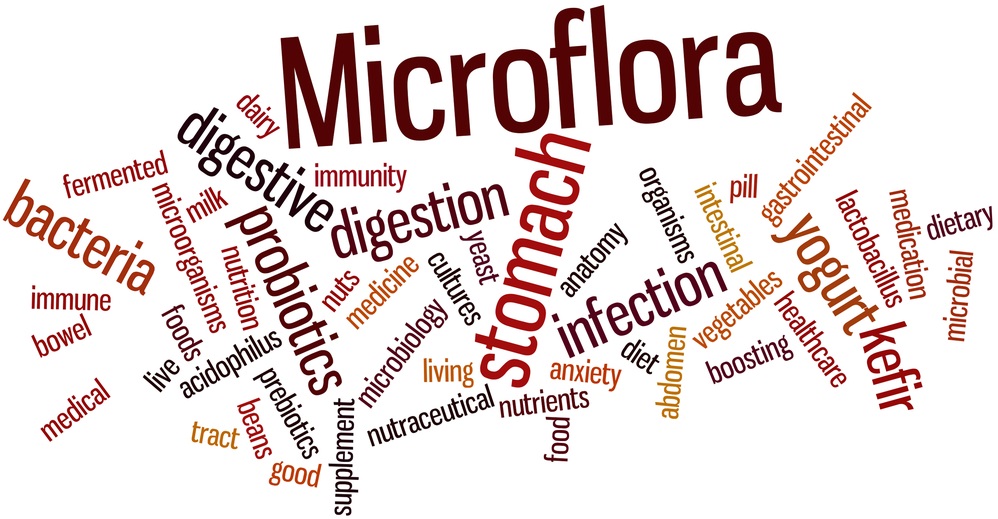As we age, our bodies undergo numerous changes, among them those that occur within the digestive system. Some of these issues may only be minimally uncomfortable, while others may require urgent medical care. The good news is that there are a number of ways of improving digestive problems as we age.
In case you or someone you know is over fifty, it is good to be aware of the issues that can cause digestive problems. It is important that we are eating the right foods that can alleviate and prevent such problems.
Let’s explore the most common ailments of the digestive system and what can be done to improve digestion so that you live your best life.
Problems with Constipation
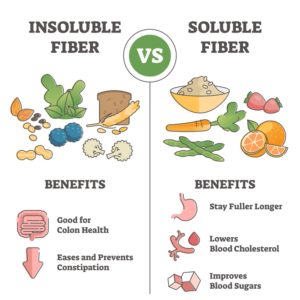 Constipation is by far one of the most frequent complaints that occur in older adults. Though the direct causes of constipation may be unclear, it can be associated with a number of factors.
Constipation is by far one of the most frequent complaints that occur in older adults. Though the direct causes of constipation may be unclear, it can be associated with a number of factors.
This includes reduced food intake and reduced consumption of water.
The best way to combat constipation is to eat more fiber, both the soluble and insoluble varieties.
Insoluble fiber acts as roughage and includes foods such as wheat bran, nuts, beans, and vegetables, such as cauliflower, green beans, and potatoes.
Soluble fiber helps absorb water and includes foods such as peas, beans apples, citrus fruits as well as psyllium.
We need soluble fiber has it helps move the food through the digestive system. This is very helpful for those struggling with constipation.
It’s a good idea to make sure you get lots of vegetables, beans, and some fruits in your diet.
If not, that is not possible then supplementation with a fiber supplement is usually enough to promote regularity and daily bowel movements.
Peptic Ulcer Disease
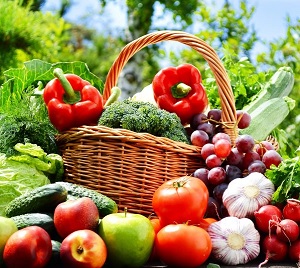 Peptic ulcers can occur in persons of any age, but the older you are the more likely you are to experience symptoms of this ailment.
Peptic ulcers can occur in persons of any age, but the older you are the more likely you are to experience symptoms of this ailment.
It is the result of the protective lining in the stomach being reduced.
Sometimes, bacteria living in the stomach (H. Pylori) overgrow and can promote damage to the stomach wall, and will require antibiotic therapy.
Peptic ulcer disease can be extremely painful with symptoms such as heartburn.
One way that you may be able to remedy it is by avoiding foods that increase stomach acidity.
Excessive stomach acid is what causes pain at the site of ulceration.
Consume lots of vegetables, as they are naturally alkaline and help to reduce acidity in the stomach.
As well, dairy should be limited or avoided as it causes a reflex surge in acidity.
Loss Of Appetite
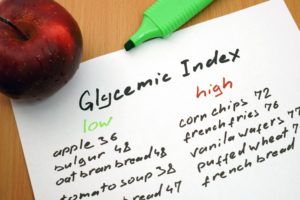 Sometimes the development of chronic conditions leads to changes exceeding what is visible on the surface.
Sometimes the development of chronic conditions leads to changes exceeding what is visible on the surface.
Take for example diabetes, which can damage the vagus nerve in the stomach, resulting in loss of the hunger sensation or the ability to know when you’ve had enough.
Though this is tough to treat, it may be more effective to prevent it altogether.
If diagnosed with diabetes, consume foods with a low GI score to avoid high blood sugar spikes, such as vegetables and fibrous carbohydrates.
Lactose Intolerance Causing Diarrhea
 Some people are frustrated as to why they become lactose intolerant as they age, even though they were not previously.
Some people are frustrated as to why they become lactose intolerant as they age, even though they were not previously.
This usually occurs due to reduced lactase levels in the small intestine, along with the overgrowth of bacteria.
The result is that it can cause bloating, pain, and the inability to absorb the sugars.
If you are one of the millions that experience this reduced ability to absorb lactose, it may be better to avoid it completely.
However, there are enzyme supplements available to treat it if you still want to eat dairy products.
As for the accompanying loose bowels, fiber will be your best bet as it absorbs water and makes your stool substantive.
Problems with Gallstones
Gallstones usually form as a result of diminished fat and cholesterol intake. In fact, it is not high levels as is commonly assumed.
Gallstones can be very painful and may even block the flow of bile from the gallbladder when it is needed to digest fat.
The best way to prevent gallstones? Consume healthy fats every day. Good sources are coconut oil, avocados, and fatty fish.
Foods That Improve Digestion
There are a number of different foods that are really good for digestion. Here is a list of some foods that are good for improving digestive problems.
Yogurt
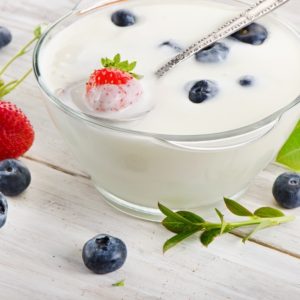 Yogurt is a good addition to your daily food intake if you aren’t already enjoying this food.
Yogurt is a good addition to your daily food intake if you aren’t already enjoying this food.
It is a good idea to have about a cup every day. You can have it at the end of a meal like a dessert, or you can enjoy it as a snack.
One of the reasons yogurt makes an excellent addition to your diet is because of the healthy bacteria it contains.
Many health practitioners recommend yogurt if you have digestion problems. It is actually really good for gut health.
When you are purchasing yogurt, make sure that it contains live and active cultures. This is necessary to aid digestion.
Also, it is a good idea to avoid any yogurt that is filled with sugar.
Chia Seeds
Chia seeds are another great food that also happens to be good for your digestion. These seeds are perfect because of how many nutrients they contain.
They have a lot of vitamins, minerals, and antioxidants. They also contain omega-3 fatty acids and fiber.
As a result, they are good for improving digestive problems. Chia seeds can also help with the regulation of bowel function.
One other good thing about Chia seeds is that they can reduce inflammation in the body. As well, they lower cholesterol.
Just enjoy a couple of tablespoons of the seeds each day. They make a great addition to a smoothie, sprinkled on yogurt, or salads.
Lean Protein
 Another addition to your diet is lean protein, which includes poultry and fish. These foods contain omega-3 fatty acids.
Another addition to your diet is lean protein, which includes poultry and fish. These foods contain omega-3 fatty acids.
It is important to note, that lean protein tends to be easier to digest than red meat. Why not enjoy a piece of salmon or chicken and see if your gut health improves.
Bananas
This fruit can help with your digestion. Packed with nutrients they are very easy to tolerate.
Enjoy at least one banana a day. They are great sliced on top of cereal or spread some peanut butter on toast and top with sliced bananas.
They are also great on their own or part of a smoothie!
Aging and the Digestive Tract Video:
Digestive problems can occur at any age, but risks increase with age, making it important to watch your diet as a way of improving digestive problems.
Many of these disorders could lead to surgical intervention if not addressed soon enough, causing immobility and risks for further health issues.
